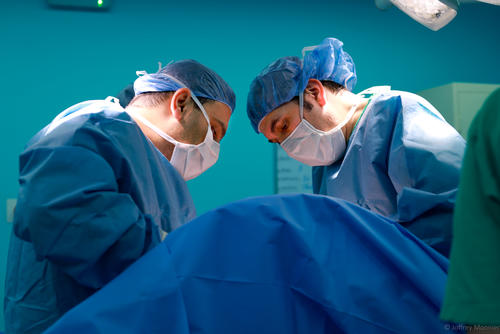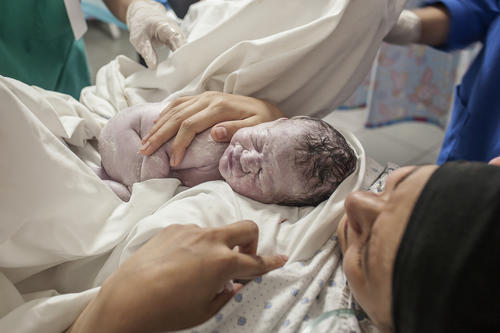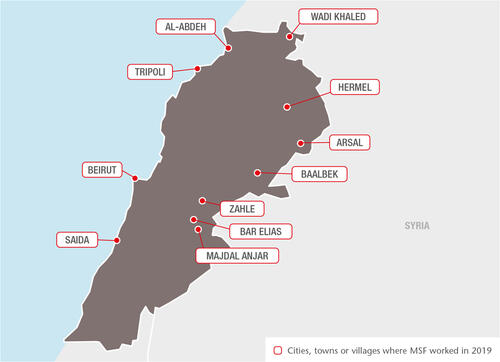
217,600
217,6
10,700
10,7
4,850
4,85

8,880
8,88
The demonstrations that took place in 2019 were the largest in terms of numbers, geographical spread, and diversity for decades. Thousands of people protested against the sectarian Lebanese political system, which fuelled years of institutional corruption, leading to a stagnant economy, unemployment and limited access to basic services such as electricity and clean water. The economic instability and political deadlock led to rapid inflation. As a result, living conditions deteriorated and health costs increased, affecting the most vulnerable fringes of society, whether Lebanese, migrants or refugees.
In Lebanon, the health system is highly privatised and fragmented, and free medical services are almost non-existent. Ensuring free access to high-quality general and specialist healthcare has been the main objective of Médecins Sans Frontières (MSF) since 2008.
Bekaa Valley
In Bekaa Valley, an area with a dense Syrian refugee population, we run general healthcare services in Arsal, Hermel, Baalbek and Majdal Anjar clinics. We treat chronic non-communicable diseases and provide mental health support and sexual and reproductive healthcare services, with a focus on mother and child health in Madjal Anjar and Arsal. In 2019, MSF partnered with the Ministry of Public Health to implement part of its national mental health strategy by extending World Health Organization (WHO) Mental Health Gap Action Programme activities to Hermel and Arsal clinics. The programme, known as mhGAP, aims to guarantee access to treatment for mental health disorders to more people, with general practitioners supervised and supported by psychiatrists.
We also run a specialised paediatrics programme in Zahle that includes emergency consultations, paediatric intensive care and treatment for thalassemia at Elias Hraoui governmental hospital.
In Bar Elias, we provide care for severe wounds, with a focus on burns patients, and essential elective surgery for adults and children.

Northern Lebanon and Akkar
In Wadi Khaled, we offer general healthcare for vulnerable local communities, including mental health support, treatment for chronic non-communicable diseases, and paediatrics.
Our teams in Tripoli and Al-Abdeh continue to provide treatment for chronic non-communicable diseases, family planning services and mental health care. As in Bekaa, we are partnering the Ministry of Public Health to implement the WHO mhGAP programme.
In 2019, we initiated new operational research to test the feasibility of using a fixed-dose combination medication for patients with cardiovascular disease, particularly those living in a refugee setting.
South Beirut
Our services in South Beirut include sexual and reproductive healthcare, treatment for chronic non-communicable diseases and mental health consultations, in Shatila refugee camp and at our family clinic in Burj Barajneh camp. We also offer maternity services in our birth centre in Rafik Hariri University hospital.
South Lebanon
Our team in Ein Al-Hilweh, one of the most populated Palestinian refugee camps, operate a home-based care programme for patients with chronic non-communicable diseases and support medical personnel in the camp with emergency response training to enable them to stabilise patients with violence-related injuries.

















